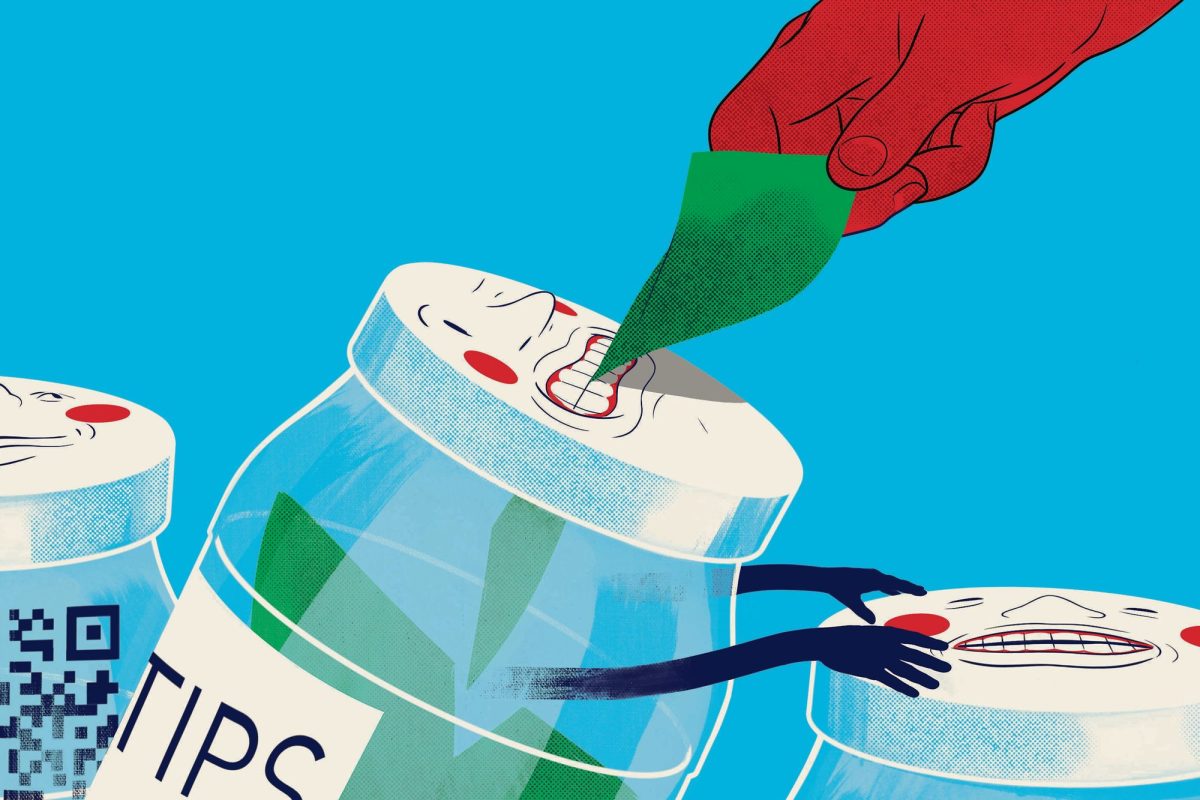In contemplating when to tip, we must first expand our definition of service: it is a recognition of generosity. Should you slide a five to your Doordash driver, the barista who made your oat milk latte, or the hairdresser who cut your perfectly styled ‘70s George Harrison-esque mullet? In the detailed display of service, hospitality and dining, tipping has long been our go-to encore, an expected ovation for a well-played performance. But let’s peel back the curtain of this tradition that we have come to accept as the norm. While tipping ostensibly rewards exceptional service, tipping is also a platform where inequities take center stage. Going beyond a simple nod to good service, it is time we reconsider this age-old practice.
The tip jar has become a microcosm of power imbalance. Customers wield the power to reward or withhold, casting judgment on service quality with a few dollars or cents. This dynamic places service workers in a vulnerable position, dependent on the whims of those they serve for a significant portion of their income.
While tipping may seem like a voluntary act, the reality is more nuanced. In a society where tipping is customary, the act of leaving a tip becomes less of a choice and more of an expectation. This blurs the lines between genuine appreciation and social obligation.
Tipping is not the unbiased applause we think it is. In a theater filled with patrons, where the stage is capitalism, the leading biases—race, gender, or physical appearance—take their bows. Studies consistently demonstrate the uneven distribution of tips. The spotlight reveals a dialogue that perpetuates social and economic disparities. As customers and employees, we unknowingly play a role in this production. Our generosity is often guided by preconceived notions rather than genuine appreciation.
I work at a dog cafe where I take coffee orders, work the register, watch customers’ dogs, and clean up their excrement as well. With every order I take and every puddle of pee I clean I am just oozing with charisma and interest. Yet, at the end of every transaction, I still have to click “Continue Without Tip.” Each time I click that big blue button that laughs in my face I am flooded with feelings of socialist ire. Was I not peppy enough? Was I too peppy? Customers will walk away so nonchalantly as if they don’t see the large screen in front of their faces asking them for a skosh of gratuity.
For those pulling the strings behind the curtain (i.e. service workers), tips are not just a bonus, they are a crucial part of their livelihood. This dependence introduces financial instability and forces workers to endure precarious employment conditions. Our appreciation should not be a tightrope walk for those bringing our experiences to life.
Taking a global tour of tipping customs sheds light on alternatives that have been proven successful elsewhere. Some countries have swapped out tipping for a more inclusive approach: ensuring fair compensation for their employees. This should be a cue for us to broaden our perspectives and adopt practices that coordinate with global cadences. It is a lesson we can not afford to ignore as we contemplate reshaping our gratuity landscape.
We are not in an economy where part-time service workers can afford to not be tipped. The United States operates on a tipping system that allows businesses to pay their staff a lower base wage, with the expectation that tips will make up the difference. The cost of living in New York City alone, contrasted with a drastically low minimum wage, makes tipping a necessity for many service workers. Employees should not have to rely on being tipped by a customer to afford groceries or rent. The price of everything is exclusively high. I know that these establishments can afford to pay their employees an appropriate salary, and if they can’t, they should not be in business.
It is time for a cultural reevaluation of how we view tipping. We should be advocating for fair wages, improved working conditions and supporting progressive candidates in local elections who advocate for an increase in the federal minimum wage. It is about shedding light on societal issues at their core. Exploring alternatives like service charges for inclusive pricing lets us play a role in creating a more just and compassionate narrative for those who service us.
In the grand show of reconsidering tipping, let’s not just adjust the lighting, but change the entire set. It is about recognizing the far-reaching impacts of our applause on those who rely on it. We have the power to reshape an industry and create an environment where everyone can take a bow, knowing they are valued and appreciated. After all, the true measure of our society’s values is not just in the tips we leave, but in the respect we afford to those who serve us.








